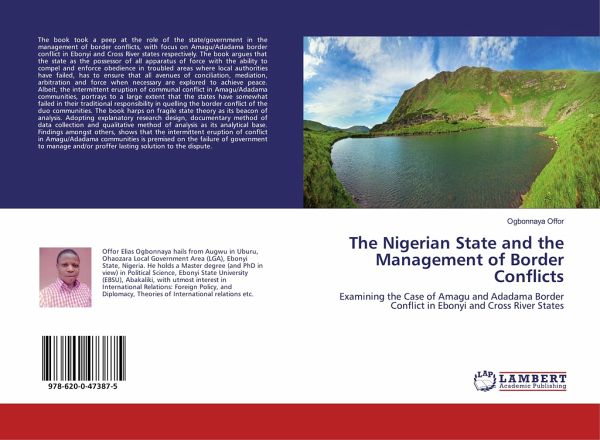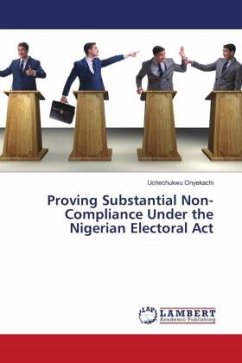
The Nigerian State and the Management of Border Conflicts
Examining the Case of Amagu and Adadama Border Conflict in Ebonyi and Cross River States
Versandkostenfrei!
Versandfertig in 1-2 Wochen
26,99 €
inkl. MwSt.

PAYBACK Punkte
13 °P sammeln!
The book took a peep at the role of the state/government in the management of border conflicts, with focus on Amagu/Adadama border conflict in Ebonyi and Cross River states respectively. The book argues that the state as the possessor of all apparatus of force with the ability to compel and enforce obedience in troubled areas where local authorities have failed, has to ensure that all avenues of conciliation, mediation, arbitration and force when necessary are explored to achieve peace. Albeit, the intermittent eruption of communal conflict in Amagu/Adadama communities, portrays to a large ext...
The book took a peep at the role of the state/government in the management of border conflicts, with focus on Amagu/Adadama border conflict in Ebonyi and Cross River states respectively. The book argues that the state as the possessor of all apparatus of force with the ability to compel and enforce obedience in troubled areas where local authorities have failed, has to ensure that all avenues of conciliation, mediation, arbitration and force when necessary are explored to achieve peace. Albeit, the intermittent eruption of communal conflict in Amagu/Adadama communities, portrays to a large extent that the states have somewhat failed in their traditional responsibility in quelling the border conflict of the duo communities. The book harps on fragile state theory as its beacon of analysis. Adopting explanatory research design, documentary method of data collection and qualitative method of analysis as its analytical base. Findings amongst others, shows that the intermittent eruption of conflict in Amagu/Adadama communities is premised on the failure of government to manage and/or proffer lasting solution to the dispute.












